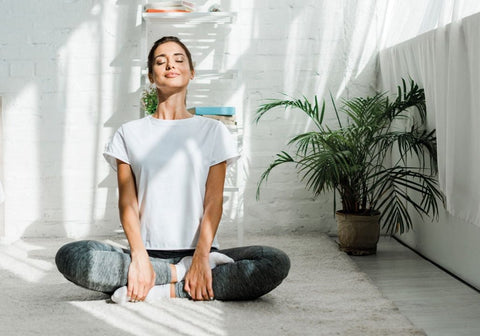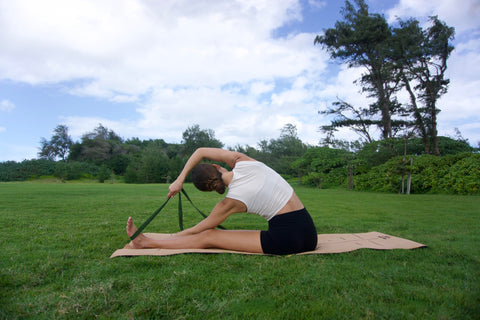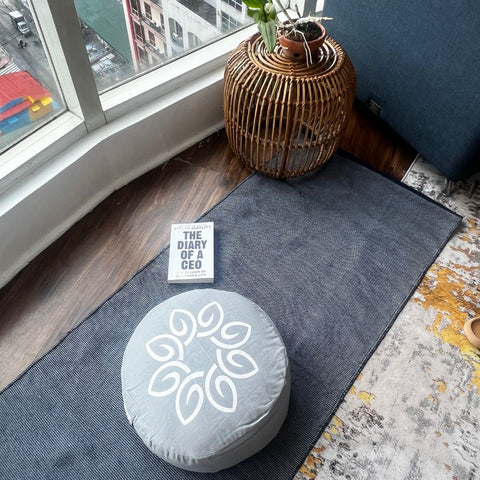In a world increasingly focused on sustainability and mindful living, yogis have a unique opportunity to take conscious steps that reflect the values of yoga—both on and off the mat. Practicing yoga is not just about physical postures; it embodies a commitment to wellness, mindfulness, and respect for the environment. Sustainable yoga gear aligns with this philosophy by reducing environmental impact, minimizing harmful chemicals, and promoting fair trade practices. Let’s explore why sustainable gear should be at the top of every yogi’s list.
The Importance of Sustainability in Yoga Gear
Yoga equipment is often made of synthetic materials like PVC, which is not only harmful to the environment but also poses health risks. Studies have shown that PVC releases harmful chemicals during production and disposal, contributing to environmental pollution and human health issues. Switching to sustainable yoga gear, such as mats made from cork or organic cotton bolsters, can help protect both the planet and the practitioner.
1. Environmental Impact
Choosing sustainable yoga gear means reducing your environmental footprint. Conventional yoga mats and accessories are made from synthetic materials that contribute to pollution, water consumption, and waste. In contrast, eco-friendly materials like cork, natural rubber, and organic cotton have a significantly lower impact on the environment.
For instance, cork is a renewable resource, as it is harvested from the bark of cork oak trees, which can regenerate after harvesting. Additionally, cork production supports biodiversity, as these trees provide habitats for numerous species. By opting for a cork yoga mat, yogis not only get excellent grip and durability but also contribute to forest preservation.
2. Health Benefits of Eco-Friendly Yoga Gear
Sustainable yoga products are free from harmful chemicals and toxins, making them safer for long-term use. Many conventional yoga mats are made with PVC and other synthetic materials that can release toxic chemicals, especially when heated during intense yoga sessions. A recent study from the Environmental Working Group found that prolonged exposure to these chemicals can cause respiratory issues and even hormone disruption.
By choosing non-toxic materials, such as natural rubber or organic cotton, yogis protect themselves from potential health hazards. Organic cotton bolsters, for example, provide support without the risk of inhaling toxins, making them ideal for restorative poses and meditation.
3. Supporting Ethical Manufacturing Practices
Choosing sustainable yoga gear means supporting companies that value fair labor practices and ethical sourcing. The sustainable yoga industry often emphasizes transparency in manufacturing, ensuring that the people who make the products work in safe conditions and receive fair wages. We at Gayo are committed to ethical sourcing and use natural, ethically derived materials in our products.
Fair Trade certifications and similar practices are common among sustainable brands, ensuring that the entire production chain reflects values that yogis hold dear—compassion, respect, and responsibility. For yogis looking to align their purchases with their values, supporting brands that prioritize fair labor practices is essential.
4. Durability and Long-Term Value
Sustainable yoga gear is often more durable than conventional options, providing better value in the long run. For example, cork yoga mats and organic cotton bolsters tend to withstand wear and tear better than synthetic alternatives. A high-quality cork mat or cotton bolster may cost more initially but lasts longer, reducing the need for frequent replacements and ultimately saving money.
Eco-friendly yoga gear is designed to endure intensive use, offering a reliable, stable surface and support over time. This durability not only supports your practice but also reduces waste, making it a cost-effective and environmentally friendly choice.
Gayo: Leading the Way in Sustainable Yoga Gear
For yogis who want to incorporate sustainability into their practice, Gayo offers a range of eco-friendly yoga products that emphasize quality and sustainability. Here are some top picks:
- Cork Yoga Mat: Made from sustainably harvested cork and natural rubber, Gayo’s cork mat provides a superior grip and non-slip surface, perfect for all yoga styles. Cork’s natural properties make it antimicrobial, so it remains clean and odor-free even during the sweatiest sessions.
- Buckwheat Meditation Cushion: Gayo’s Buckwheat Meditation Cushion is a top choice for mindful yogis who prioritize sustainability. Filled with organic buckwheat hulls, this cushion provides firm yet comfortable support for meditation and breathwork. Its organic cotton cover is removable and washable, ensuring easy maintenance, and it’s designed to promote proper spinal alignment for longer, deeper meditations.
Choosing sustainable gear from brands like Gayo helps yogis connect their practice with a broader mission of environmental stewardship. Gayo’s commitment to quality and eco-consciousness makes it a great choice for those who want their yoga gear to reflect their values.
Taking the First Step Towards Sustainable Yoga Gear
Integrating sustainable yoga gear into your practice is a powerful step toward mindful consumption. By choosing eco-friendly products, yogis support a healthier planet, reduce their exposure to harmful chemicals, and promote fair labor practices. Sustainable yoga gear embodies the true spirit of yoga, going beyond physical poses to reflect respect and compassion for all living beings.
Ready to make the shift? Visit GayoShop.com to explore a range of sustainable yoga products that prioritize both your practice and the planet. Embrace a more conscious approach to yoga, and let every session be a step toward a better, greener world.
This article highlights the values behind choosing eco-friendly yoga gear and incorporates actionable steps for yogis looking to make mindful choices. By linking credible resources, Gayo can further establish authority in the sustainable yoga space. Let me know if you would like specific research-backed links for added value.





